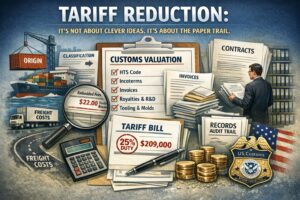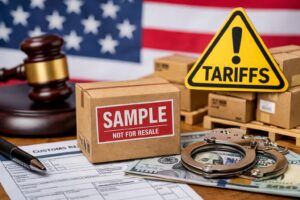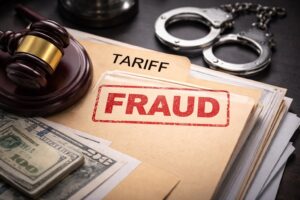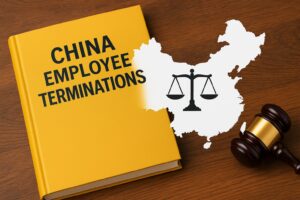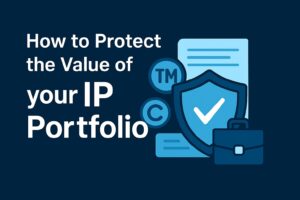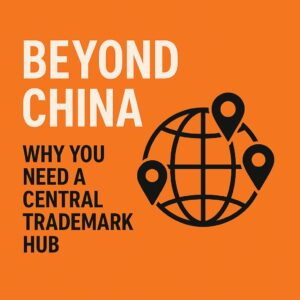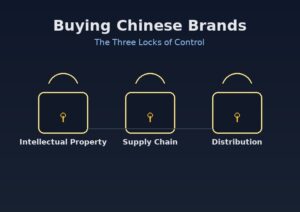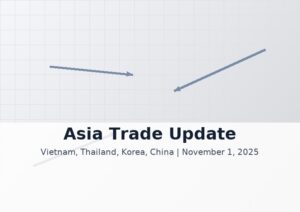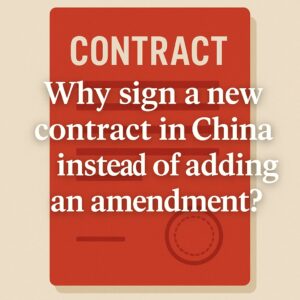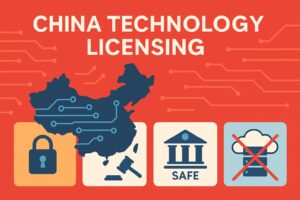Fake, Woeful, and “Captured” China Lawyers
Our China lawyers have seen each of the following examples of China “lawyer” fraud at least a dozen times in the last decade.
1. The Non-Existent WFOE: A well-known U.S. company sought our help in figuring out what to do with its China general manager, who had stolen millions of dollars from the company. Our investigation of this GM quickly morphed into an investigation of the China company itself and that led us to realize there had never been a China company. The China WFOE that was doing nearly one hundred million dollars a year in manufacturing with nearly one hundred employees simply did not exist because no WFOE had ever been formed. We spent months working with local Chinese government officials getting this company legal and seeing to its payment of back taxes.
This incident happened more than a decade ago, and it was by far the largest such incident we have ever seen, and it is not likely to be duplicated in today’s China. But nearly every year since then, a much smaller company will come to us seeking help for its Chinese company and there is no such thing.
2. The Fake Joint Venture: A U.S. company contacted us because its China JV company had been successfully selling its product in the United States for years, but the U.S. company had never received a single penny from the venture. The Chinese language “JV papers” the client provided us turned out to be an agreement with a Chinese national to have him go off and start a joint venture. Further research found that there were no real “JV papers” and there was no real JV.
This was not even close to the first time we have seen something like this involving a JV. This often happens because (believe it or not) the American or European company goes along with using the same local Chinese lawyer for both the Chinese and American parties in the “JV.” See China Joint Ventures: Everything You Should Know.
3. The Trademark Registration Scam: A U.S. company came to us to complain about how its former China distributor was now manufacturing and selling the American company’s product in China, “in violation of our trademark.” The American company told us how its former distributor had years ago registered the American company’s brand name “for it” in China and the American company even had a well-done fake trademark certificate to prove this. Problem was that the distributor had never registered the trademark for this American company at all; the distributor had in fact registered it in the name of a Chinese citizen (a relative of the distributor) and that person now owned it. We told the American company that it had a pretty good claim to the trademark in China, but it was so frustrated with China that it chose to just walk away.
We see offshoots of this non-existent trademark example at least a few times a year, often involving either the distributor or the sourcing agent. Companies also regularly come to our China trademark lawyers believing they have a China trademark because they paid an online service to register such a trademark for them, but they have nothing at all.
More recently, we had a company come to us after its products were seized at the Chinese border for infringing on someone’s trademark. The company asked us how it could possibly be violating someone’s trademark for XYZ when it had registered XYZ two years ago and it had an email from its Chinese lawyer to prove it. To make a long story short, this company had used a ridiculously cheap online trademark service that no longer existed (these services tend to shut down every year or so and then re-form as a new online trademark service) and its “Chinese lawyer” was almost certainly not a lawyer at all. Most importantly, this online China trademark service had taken money from this company and claimed to have secured the trademark they sought but had simply pocketed the payment and done absolutely nothing. I told this company what would be involved with trying to salvage its China manufacturing and in trying to get its seized product released and how the odds for success were not all that high. The company made the (not unwise) decision to not throw more good money after bad and shut down its operations.
The Rise of Fake China Legal Services
Since the onset of COVID, our China lawyers have seen a massive increase in websites and independent contractors on sites like Fiverr purporting to provide the following China legal services at shockingly low prices:
- China Trademarks
- China Patents
- China Copyrights
- China NNN Agreements
- China Manufacturing Agreements
- China Distribution Agreement
- China Licensing Agreements
- China Product Development Agreements
These “service providers” (note that I am not calling them lawyers, though many purport to be lawyers) will, for anywhere from $10 to $250, review or draft your contracts or provide you a template agreement for China. But many (most?) of them seem to have literally no ability to do these things and their results bear this out.
My law firm’s China lawyers have had to tell a number of foreign companies that came to us (after getting into trouble) that their contracts were either completely useless or worse than having no contract at all. When we explain to these companies why their contracts are so harmful, their response is usually that they could not afford to use “a real law firm” and they “just figured these would be better than nothing at all.” The problem is that in most cases they are worse than nothing at all.
Horror Stories and Legal Risk
A few weeks ago, I got an email from someone who had contacted me many months ago regarding a potential litigation matter against a Chinese company. The case was not terribly complicated, and I recommended this person secure local Chinese counsel, particularly since this person spoke Mandarin. The new email was an update, and the news was not good.
This person is convinced his local Chinese attorney passed on secrets to the Chinese company (not so coincidentally, a State-Owned Chinese Entity, or SOE) he intended to sue. I cannot say whether this is true or not, but I can tell you that I hear similar stories at least 2-3 times a year, and I have never in my entire life heard a story like this involving an American or British lawyer.
I have also never heard a story like this involving a reputable Chinese law firm either. The other two instances involved American companies that had retained (two different) Chinese service providers for their trademark applications, only to have those law firms take forever to file for their trademarks and then report back that a Chinese competitor company had — in the meantime — beaten the American companies to the trademarks. Both companies were convinced (as was I) that their “lawyer” (who probably was not even a real lawyer) had given an advance tip-off to their Chinese competitors and, no doubt, been paid nicely for having done so.
In The Critical Absence of Attorney-Client Confidentiality in China, we discussed some of the risks inherent in using a Chinese citizen as your lawyer, and some of the things you should do to try to reduce those risks:
It is hard to see how the average Chinese lawyer would be fearful of the consequences of revealing confidential information, especially if the affected client is a foreigner, even more so these days if it is an American company. This means you are in a vulnerable situation if your Chinese lawyer stands to benefit by revealing information you provide. Perhaps your Chinese lawyer has another client who would just love to take a look at that new patent application of yours. Perhaps your Chinese law firm stands to benefit by tipping off your competitor before it files your trademark application — we have many times heard of this happening. Or maybe it will be as simple as revealing that you told them that you would have paid $10 per widget, not just the $8 written in your contract. Worse yet, what if your Chinese lawyer is in hot water with Chinese governmental authorities and reporting the missteps of a foreign company will help them curry favor? All of these nightmare scenarios are real life possibilities.
Mindful of all this, savvy clients often take their China work to lawyers bound by the strict confidentiality rules of foreign countries. Of course, on occasion, some information may need to be revealed to Chinese co-counsel, but it should always be done on a careful, measured, need-to-know basis.
Needless to say, you do not want to find out that your communication is not privileged after you have disclosed confidential information. The best course of action will usually be to talk to your international lawyers in the United States and design appropriate strategies before engaging with lawyers abroad. These lawyer trust issues have been out there for a long time, but with the increasing tensions between China and the United States, they are and will continue coming to the fore and this has spurred us to write about this again.
The risk of your Chinese lawyer using your information for its own profit has always been there, but it was rare for this risk to come to fruition until COVID. Now we are seeing this happen all the time and we think the bulk of this is coming from non-lawyers masquerading as lawyers and from online service providers selling templates.
Navigating China’s Legal Minefields
Roughly 40% of the China contracts we have seen done at shockingly low prices were so badly written as to be worse than no contract at all. Around 25% of these contracts appeared to involve a lawyer/fake lawyer who was paid by the Chinese side to throw the contract to the Chinese side. The remaining 25% of these contracts are roughly divided between those that are slightly better than nothing at all and those that are roughly the equivalent of nothing at all. In other words, you will pay a really low fee for a Chinese contract that gives you about a 10-15% chance of doing better than doing nothing at all and about a 75% chance of doing worse. How do you like those odds?
In addition to contracts written in way that simply does not work, we also often see issues with the type of contract chosen. We see someone who paid for a bad NNN agreement when they did not even need an NNN agreement at all — what they really needed was a Product Development Agreement. And we have seen the reverse of this. We have seen licensing agreements when a distribution agreement was what was actually needed and we have seen the reverse of this. We have seen distribution agreements when a manufacturing agreement was needed. In other words, people are not only paying for contracts so badly drafted as to be worse than no contract at all, but they are also paying for the wrong contract for their specific situation! See China Template Manufacturing Contract Agreements.
Twice in the last month or so, the international litigators at my law firm analyzed China contracts and wrote memos to clients explaining our views of those contracts. I am providing those two emails below because I think they do a good job highlighting how even the littlest mistake on the simplest of Chinese contract provisions can expose you to really bad outcomes. Both of these emails involved situations where an Australian (!) company had paid almost nothing for a contract that was not good enough for us to pursue its claims, but also not bad enough for us to be able to say for certain that its lawyer (or fake lawyer) had intentionally sought to make things as easy as possible for the Australian company’s Chinese counterparty.
Most importantly, a lack of recourse against the Chinese counterparty would likely be devastating to both of these Australian companies and so we wanted to go out of our way to explain why we did not think it made sense for them to pursue claims against their Chinese counterparties, yet also why we still thought it important they do something. The below emails have been shortened and modified somewhat to hide any client identifiers and to make them more concise and readable.
Email #1. Considering you got your contract drafter (I doubt this person is an attorney) off Fiverr, I am surprised it specifies the protections you want. However, I question its damages provision because it explicitly calls your remedies a “penalty,” which is the last thing you want to call it, because it might cause a Chinese court not to enforce it. Since this is perhaps the most important provision in your contract, your manufacturer is much more likely to steal your IP. Also, the fact that it calls for disputes to be resolved in arbitration greatly weakens the value of this provision.
This agreement is also rife with inconsistencies. For example, it uses “confidential information” and “proprietary information” interchangeably, which will be confusing to the judge and, if you ever find yourself in court, these provisions will give your Chinese counterparty some good arguments. The contract also adds a mutuality clause (article 16) that seems to make the NNN obligations mutual, which is not what you want. Overall, it is very difficult to read and will frustrate the judge, which is also something you do not want.
Speaking of judges, the contract should not provide for arbitration before three arbitrators in both Chinese and English. This makes it considerably easier for your manufacturer to steal your IP because it makes it so expensive for you to sue. Though it also makes it expensive for your Chinese manufacturer to sue you, this hardly matters because the odds of your Chinese manufacturer breaching this contract by providing you with bad or no product or stealing your IP are much higher than you failing to pay them.
The requirement for arbitration in both Chinese and English means you will need to pay a huge filing fee, a huge fee for three bilingual arbitrators (arbitrators tend to be very expensive lawyers), and another huge fee for your own completely bilingual attorney — more likely a set of attorneys. For many reasons, our international dispute resolution attorneys usually (but not always) prefer litigation in Chinese courts. If arbitration makes sense, we usually fight hard for it to be in just English and before just one arbitrator.
Even if you win at arbitration, you will need to pay a lawyer to take that arbitration award to a Chinese court where you will need to file a new lawsuit to get your arbitration award turned into a Chinese court judgment (and your manufacturer can fight you on this) before you can use the force of the Chinese government to collect on your award/judgment. Like I said, we usually draft our contracts to have disputes resolved in a Chinese court, thus saving you money and time, cutting out this additional step, and making it clear to the manufacturer that it had better not mess around with you because if it does you will be able to relatively quickly and cheaply sue in a court and freeze its assets immediately (something you cannot do with arbitration).
In conclusion, this agreement might sort of work, but it is just about as bad as can be. We cannot tell whether this agreement is so bad because the service provider who drafted it for you just “pulled it off a shelf” or whether it was skillfully drafted to favor the Chinese side without it being clear this was done deliberately.
Email #2.This contract is not really appropriate for China. Unlike most contracts not written for China, there is some chance it might be enforced, but probably not enough to give us any real leverage over your manufacturer.
It provides for you to pursue your claims against the Chinese company by arbitration or in the courts of the United States. China virtually never enforces US court judgments, so suing in a US court would almost certainly end up being a waste of your time and money. Every decent Chinese lawyer knows this.
You might be able to pursue arbitration in the US, but this agreement is completely vague about what form the arbitration should take. Chinese courts only enforce formal arbitration – those that are before a well-recognized arbitration body like the American Arbitration Association. Chinese courts hate vague arbitration clauses, so even that is probably just a 50-50 chance. You will probably have to pay a lot of money to arbitrate in New York and then more money to fight to get that arbitration award enforced in China. For this reason alone, we do not like this case enough to bring it.
There are all sorts of other issues with this contract as well. For instance, I doubt any of the IP provisions would be enforced in China, and I question its entire premise. You paid for the molds, but near as I can tell, there is nothing to stop the Chinese side from just saying, “Sure, here’s the mold, and now we will charge you $500 for each widget.” In other words, there is nothing to stop your manufacturer from eviscerating the contract by raising its prices to drive you away.
The contract is also filled with Western-style terms that are meaningless in Chinese courts – terms like “reasonable,” etc. This will not help when it comes time to enforce it in China. This contract is bizarre because it contains elements of a Chinese contract, yet about 60 percent of it reads like a mediocre British template document, probably pulled off the Internet.
My sense is that this Chinese manufacturer, for whatever reason, is no longer interested in doing business with you and is not the least bit worried about the contract it signed with you, and probably rightfully so.
I do not know why your manufacturer is no longer interested in making any product for you, but the usual reason for this is that they either do not think they can do so profitably, or they think they can do it by themselves or with someone else more profitably. If I had to guess here, I would bet on the latter.
If you don’t sue, you almost certainly will never get the molds or your products made by this supplier, which would not necessarily be such a bad thing because you really should not want to continue with this manufacturer under this contract. If I were you, I would probably try to find another supplier as fast as possible, start over with that new supplier, and work with it to get your product to market as fast as possible. I would be sure to have a good contract in place with your next supplier before you turn over any trade secrets or pay for any molds or product. Below are the most common things our lawyers do for our clients that manufacture in China, but it does not mention product development agreements, which is probably what you should have had here from day one and which the contract you sent me sort of resembles. Here is an article we wrote on those.
Conclusion
Navigating China’s legal landscape has always been fraught with risks, but with the rising tensions between China and the West, we are seeing a massive increase in virtually all China risks, including the provision of legal services. Protecting your company in and against China requires you are provided with quality legal advice from reputable sources. If you find yourself in need of legal assistance, ensure you are working with experienced and trustworthy professionals who can provide you the expertise necessary to safeguard your operations. Don’t fall for the allure of low-cost services that will likely end up costing you much more in the long run.











